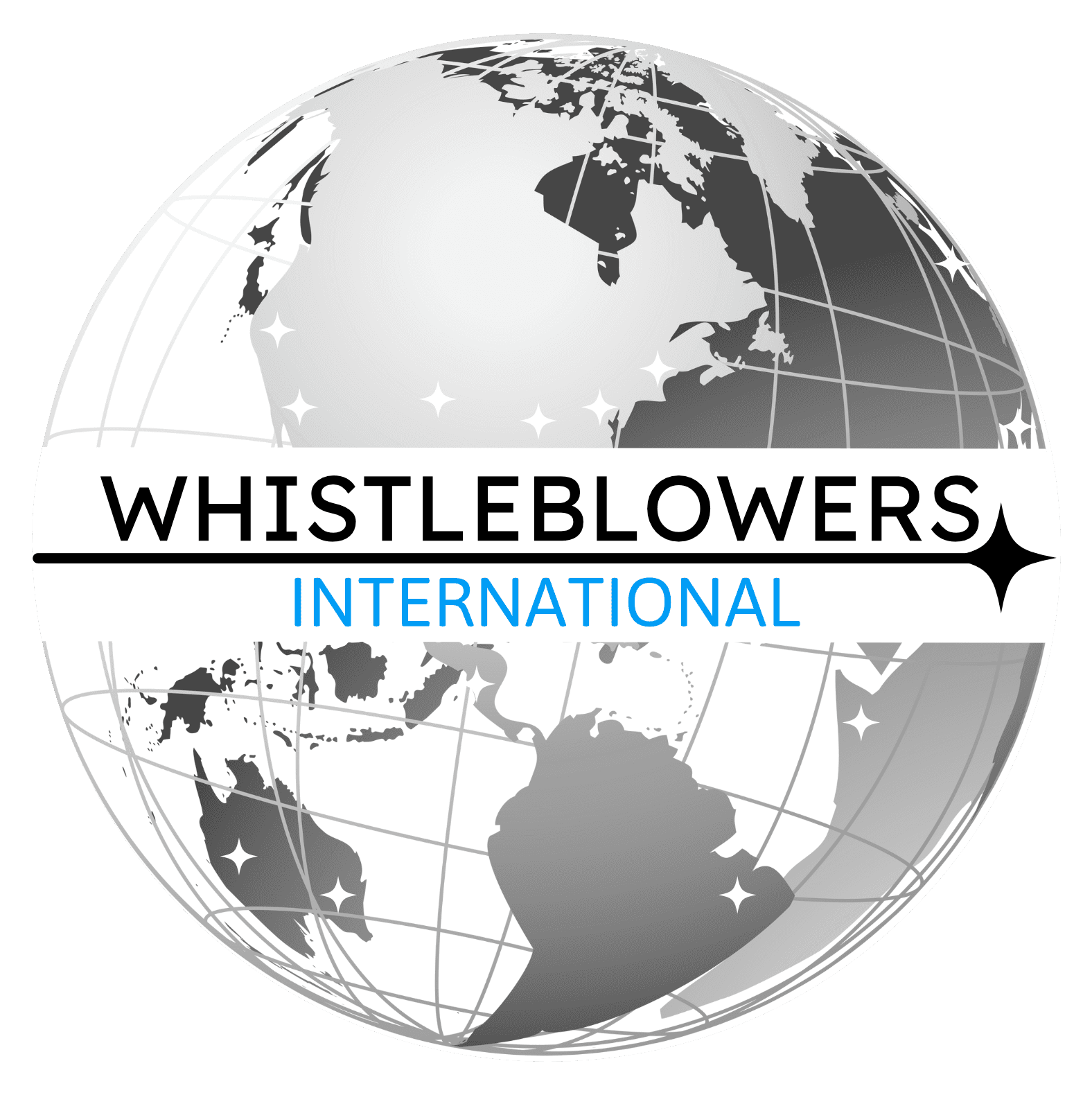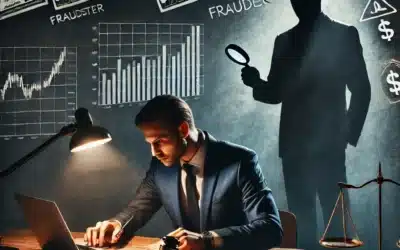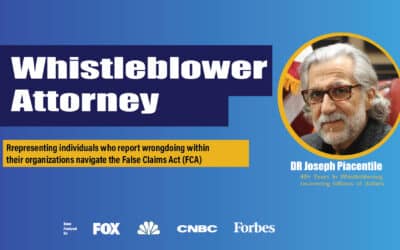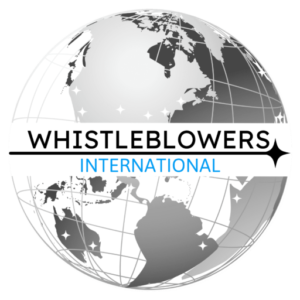FINANCIAL INSTITUTIONS REFORM, RECOVERY, AND ENFORCEMENT ACT
THE FINANCIAL INSTITUTIONS REFORM, RECOVERY, AND ENFORCEMENT ACT
ATTORNEYS FOR WHISTLEBLOWERS WHO HELP UNCOVER FRAUDULENT SCHEMES
The Financial Institutions Reform, Recovery, and Enforcement Act of 1989 (FIRREA) was passed in response to the Savings and Loan Crisis of the late 1980s. The FIRREA law reorganized the federal structure of agencies supervising savings and loan associations, or “thrifts,” and overhauled the regulations impacting the savings and loan banking system, the real estate appraisal industry, and Deposit Insurance. FIREAA also permitted the DOJ to pursue both criminal and civil charges (monetary penalties) against fraud in the financial industry, including mortgage fraud, by going after those who fraudulently harm banks, financial institutions, and their customers.
Congress subsequently passed the Financial Institutions Anti-Fraud Enforcement Act (FIAFEA), which created a rewards program for whistleblowers who help uncover fraudulent schemes by reporting non-public violations of FIRREA.
The FIAFEA statute provides for a whistleblower reward program that entitles a qualified whistleblower to receive a percentage of any monetary recovery resulting from the action.
If you are a whistleblower who exposed fraud that qualifies you for reward under FIAFEA, contact our attorneys at Whistleblowers International. We can be reached online or by calling .
HOW THE FIAFEA WHISTLEBLOWER PROGRAM WORKS
This is how the FIAFEA Whistleblower program works:
To receive a reward under FIRREA, a whistleblower must file a declaration under oath with the Attorney General of the U.S. Department of Justice (DOJ) specifically describing the facts and circumstances surrounding the alleged fraud against the financial institution, the fraud of which gives rise to civil penalties. Such fraud includes, among others –
- Receipt of gifts for procuring loans
- False Statements, Overvaluation of Securities
- Theft
- Embezzlement
- Misapplying Funds
- Bank Fraud
- And more
The whistleblower must be the original source of the information if the information is already publicly available; that is to say, the whistleblower must be the first one to report the non-public information in order to be eligible for a reward if the information is already out there in some publicly available form. The information must lead to a successful enforcement action by the government, where money is recovered from the defendant.
If an enforcement action is successful, the whistleblower will be entitled to 20% to 30% of any money up to $1 million recovered, 10% to 20% of the next $4 million recovered, and 5% to 10% of the next $5 million recovered.
The Attorney General has the discretion to determine the percentage awarded, depending on a number of factors, including the significance of the information provided and whether it leads to a successful enforcement action. The Attorney General has issued regulations that provide detailed instructions on how a whistleblower can apply for a reward and what information is required. The regulations also set forth the procedures for making a claim for a reward and the criteria that will be considered in determining whether to pay a reward.
$1.6 million is the maximum amount a whistleblower may recover under FIRREA. This would entail the enforcement action leading to the DOJ recovering $10 million or more from the party that defrauded the financial institution.
PAST SUCCESSFUL ACTIONS UNDER FIRREA
Under FIRREA, past successful actions include a $4 billion civil penalty with Citigroup in 2014 over misleading investors about mortgage-backed securities, and a $16.6 billion settlement with Bank of America over financial fraud.
FIRREA has even been used by federal prosecutors as part of a criminal and civil judgment against Volkswagen by the DOJ for a scheme to cheat on emissions testing standards. Volkswagen was in violation of the FIRREA since lenders were harmed by underwriting loans for Volkswagen vehicles that were not as environmentally friendly as Volkswagen claimed, and thus the value of these vehicles was artificially inflated. Volkswagen agreed to pay a $2.8 Billion Criminal Fine and a $1.5 Billion Settlement of Civil Environmental, Customs and Financial Violations.
TAKE ACTION IF YOU KNOW OF FRAUD COMMITTED AGAINST A FINANCIAL INSTITUTION
If you or anyone you know has information about fraud committed against financial institutions, do not hesitate to contact us at Whistleblowers International. We provide a free consultation to discuss and evaluate your claim. You can remain anonymous and anything you tell us will remain confidential. We can be reached at .
Contact Us Today
The information submitted will be submitted to the law firm of Piacentile & Associates LLP d/b/a Whistleblowers International. This communication does not create an attorney-client relationship and is submitted only for the purpose of evaluating your claim to see if this is something we are able to help you with. By contacting us, you certify that you are a potential client making a bona fide inquiry about obtaining legal services to address a potential whistleblowing legal claim. Past results do not guarantee future outcomes. While this submission does not create an attorney-client relationship, all information submitted will be kept strictly confidential per legal ethics rules since this information is submitted in contemplation of a potential attorney-client relationship. No attorney-client relationship is formed until it is determined after evaluation with you that this is something we can take on and a retainer agreement is signed by you and the law firm of Piacentile & Associates LLP d/b/a Whistleblowers International. Please also understand that by submitting your information, there is no guarantee that we will contact you in response, as at any given time, there are only a limited number of claims we are able to take on and pursue. If we do not contact you within 3-business days of your submission, please reach out to another whistleblower law firm if you are interested in pursuing your matter.
Our Areas of Practice
Healthcare Fraud
Securities / Derivatives Fraud
Fraud Against the Government
Tax Fraud
Cryptocurrencies Fraud
Defense Contractor Fraud
Money Laundering
Foreign Corrupt Practices Act
DR. JOE’S CASES HAVE BEEN FEATURED IN:





COMMITTED TO GLOBAL TRANSPARENCY
Unmasking Investment Fraud: A Private Investigator’s Guide to Navigating Financial Scams
As a private investigator specializing in investment fraud cases, I've seen countless victims fall prey to sophisticated schemes that exploit their trust and hard-earned money. Over the years, I’ve gathered insights on how to spot fraud, protect investments, and take...
Whistleblower Attorneys: Protecting Those Who Speak Out Against Fraud
At Whistleblowers International, we specialize in representing courageous individuals who report fraud, misconduct, or illegal Whistleblower Attorneys: Protecting Those Who Expose Fraud At Whistleblowers International, we are...
Financial Crimes Enforcement Network (FinCEN): An Overview
The Financial Crimes Enforcement Network (FinCEN) is a bureau within the U.S. Department of the Treasury that plays a critical role in safeguarding the financial system against illicit activities such as money laundering, terrorist financing, and other financial...
What is FinCEN?
The Financial Crimes Enforcement Network (FinCEN) is a bureau of the U.S. Department of the Treasury dedicated to combating financial crimes, such as money laundering, terrorist financing, and other illicit activities that exploit the financial system. Established in...
PCBs and Cancer: Understanding the Risks and Connections
Polychlorinated Biphenyls (PCBs) are chemical compounds that were widely used in industrial applications before their ban in the late 1970s due to health concerns. One of the most significant risks associated with PCB exposure is cancer. Numerous studies have explored...
Understanding the Current PCB Legal Landscape and Emerging Cases
Polychlorinated Biphenyls (PCBs) Polychlorinated Biphenyls (PCBs) have been the subject of numerous lawsuits for decades due to their widespread use and enduring impact on the environment and public health. Despite being banned in the late 1970s, PCBs continue to pose...
Understanding PCB Exposure: Common Questions and Answers
What is PCB Exposure? Q: What is PCB exposure? A: PCB (Polychlorinated Biphenyl) exposure refers to contact with these man-made chemicals, which were widely used in various industrial applications from the 1930s until their production was banned in many countries in...
Top U.S. Government Contractors and the Risks of Procurement Fraud
The U.S. government is one of the largest purchasers of goods and services globally, spending hundreds of billions annually on contracts with private companies. While these contracts provide significant business opportunities, they also come with risks, including the...
Understanding Government Contract Fraud: Can Contractors Be Criminally Charged?
Government contract fraud is a significant issue affecting both the federal government and the private sector. With billions of dollars allocated to government contracts annually, instances of fraud have emerged as a critical concern. This article explores whether...
Understanding Securities and Commodities Fraud: Insights from a Lawyer’s Perspective
Securities and commodities fraud can be complex and overwhelming to navigate, especially if you're facing legal challenges in these areas. This blog post aims to shed light on the essential aspects of securities and commodities fraud, answering key questions and...
The information on this website is for general information purposes only. Nothing on this site should be taken as legal advice for any individual case or situation.
We do not accept cases in all jurisdictions. No representation is made that the quality of the legal services to be performed is greater than the quality of legal services performed by other lawyers. Prior results do not guarantee a similar outcome. This information is not intended to create, and receipt or viewing does not constitute, an attorney-client relationship. While we will treat any information provided as privileged and confidential, you should understand that when you provide information about a potential case to us, we do not become your attorneys. We do not represent you until we have agreed to do so and a retainer has been signed by both of us. This information is not intended to create, and receipt or viewing does not constitute, an attorney-client relationship. This website may be considered attorney advertising in some states.
© 2024 All Rights Reserved.




